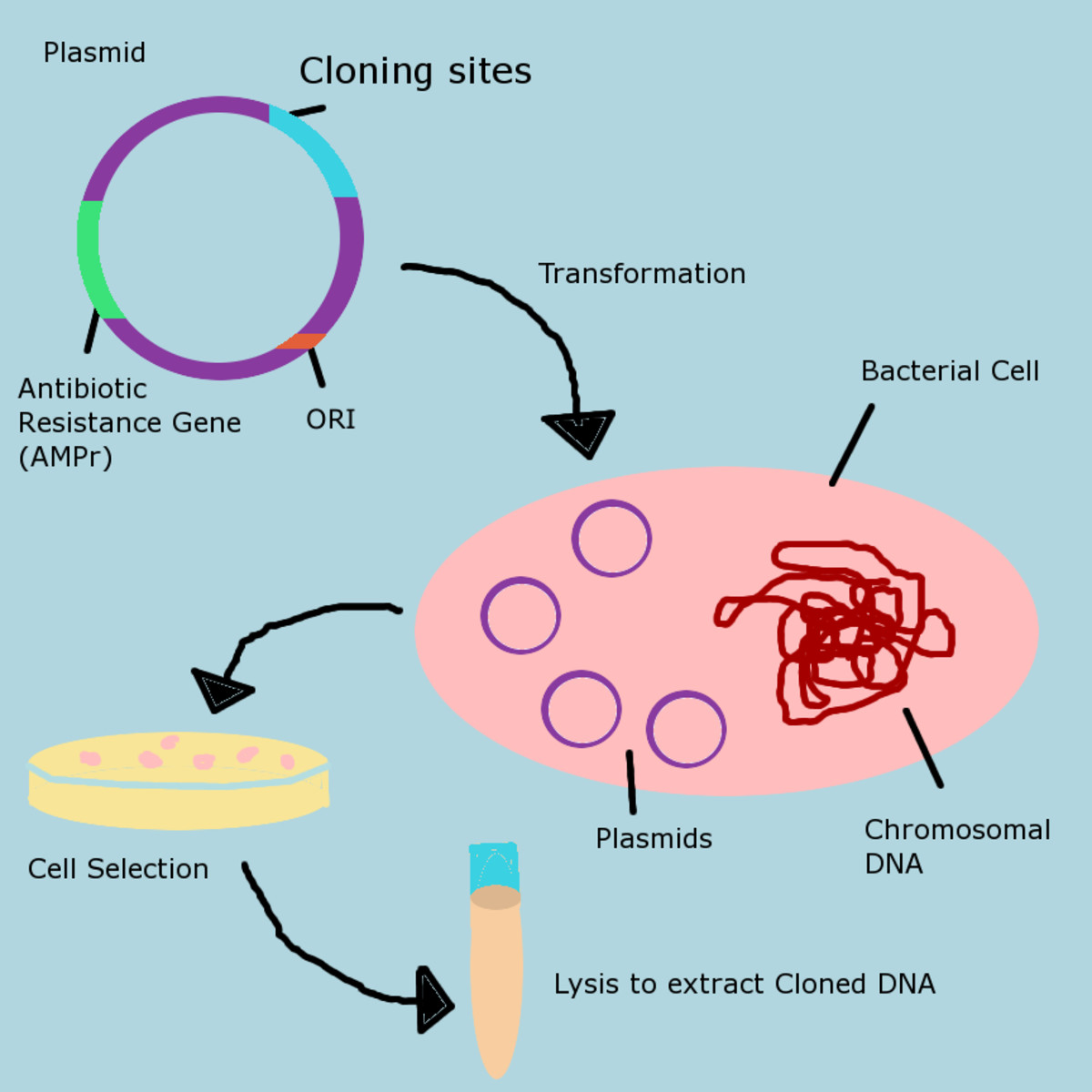Molecular Biology: Education, Careers & Jobs
Molecular Biology: Education, Career & Jobs
Molecular Biology is the branch of biology that explores the macromolecules such as nucleic acids and proteins in a living cell. The field overlaps with several other disciplines such as biochemistry, microbiology, cell biology, chemistry, genetics and computer science to investigate the structure, formation, regulation and functions of macromolecules. Although the field was started early in 1930s, it fully surfaced in 1960 following the discovery of the double helix structure of deoxyribonucleic acid (DNA) by Francis H. Crick and James D. Watson. In the year 1962, Drs. Crick and Watson were awarded Noble Prize in Physiology and Medicine for their discovery. Application of molecular biology is wide, for e.g., to diagnose and treat human diseases, to develop novel drugs, and to develop disease resistant crops.
Education
There are several universities in U.S. and elsewhere-offering bachelor degree in molecular biology. Students in bachelor program of molecular biology focus basic structure and function of macromolecules. The course also incorporates chemistry, microbiology, genetics, biochemistry, mathematics, and computer science. Students are also trained in biochemistry and molecular biology laboratory techniques such as DNA & RNA isolation, purification, Western blotting, etc.
The master degree in molecular biology is truly interdisciplinary and interdepartmental program. Students from life science discipline like biochemistry, genetics, or microbiology can directly enroll for master’s program in molecular biology. Students in master’s program are also expected to do literature survey, develop independent research project, participate in journal clubs and make presentations.
The Ph.D. program in molecular biology prepares students for a research-oriented career in academia or industry. Students in Ph.D. program will undergo rotations in core courses and laboratory techniques. This prepares students to pursue original independent research work. Faculty members of the institute/department supervise students to gain proficiency in specialized areas of their interest. Typically, the Ph.D. program is around 5 years, and all Ph.D. students will receive financial support for tuition fee and stipend for living expenses.
Students in bachelor, master and Ph.D. programs, also have some teaching responsibilities like assisting supervisors/advisors in graduate level teaching and in laboratory courses.
Career prospects
Molecular biologists are at the forefront of scientific discovery. The career projections are bright for students trained in the molecular biology field. According to the U.S. Bureau of Labor and Statistics, employment of biological scientists that include molecular biologists is projected to grow 21 percent over the 2008–18 decade.
Work Environment
Molecular biologists in university, industry or in hospital spend most of their time doing research in laboratory settings. They use a wide range of techniques to perform the experiments and some of the experiments take long hours. Also, they spend portion of the time in analyzing the results of the experiments and writing reports.
Employment sector
Job opportunities for molecular biologists are quite high, and it depends on the level of education and experiences one possess. Molecular biologists are hired as researchers and technicians in hospital labs, universities, forensics labs, veterinary field, diagnostic labs, pharmaceutical companies, food industry, environment pollution control board, biotechnology companies etc. Molecular biology applications are extensively used in the fields of biochemistry, genetics, ecology and virology. So these fields provide good opportunities for prospective molecular biologists. Additionally, molecular biologists can also apply for teaching/instructor positions, and can find jobs in journalism field, government agencies and in legal environment (e.g., patent).
Job seekers
Molecular biologist positions are advertised in well-known magazines, Science (www.sciencemag.org)and Nature (www.nature.com).These two magazines provide free onlinejob listings of both academia and industry. The jobs can be searched by various criteria such as title, location, position, specialty, employer and company name. Registered users can also receive free email alerts for positions of particular interest.
Below hubs may be useful to you
- Research Technician in Life Sciences: Education, Training & Jobs
In recent years, there is a growing demand for Research Technician jobs in the field of Life Sciences. Bachelor’s degree or high school diploma with few years of training in specialized field is the required education for research technician position - Career as Scientist in Pharmaceutical Companies
Knowledge, skills and expertise from scientists with various educational backgrounds are in great demand in pharmaceutical industries. This hub provides tips for those who are willing to make their career as scientist in pharmaceutical industries. - How to Find a Ph.D. Position?
Doctor of Philosophy (Ph.D.) degree is the highest academic degree. Ph.D. degree can be obtained in any research fields such as science, arts, commerce and finance. The Ph.D. program is designed to discover new knowledge in the field. Universities in - Laboratory Animal Care Technician: Eligibility & Job...
Animals are widely used in biomedical research to find a cure for a disease, and the laboratory animal care technician takes care of laboratory animals. - Tips to Become a Reviewer for Science Journals
Reviewing manuscripts for journals is an essential part in academic career. When you do your Ph.D. and postdoctoral work, your mentor may ask you to assist him/her to review papers for journals. You are chosen to judge others work because you have kn - Tips to Prepare for Science Journal Club
A journal club is an educational group meeting. The members of the group will present and discuss the research articles from their respective field. As a science student, you will have several advantages by participating in a journal club. This hub w - Communicating Research Results: Tips to Prepare for...
Oral presentations are essential skills in academia. It is an important means of communicating scientific information or to present your research outcome. In some college and university courses, it is mandatory for students to give an oral presentati - Careers as Postdoctoral Fellow
Career as Postdoctoral Fellow After completing Ph.D., it is common among doctoral students to ask, what next? The postdoctoral appointment provides an opportunity to survive in research community for few years, and also, offers a possibility to... - Tips to Find Jobs in Universities
Jobs at universities are not just teaching and research. Universities offer a whole range of jobs for any educational background. Universities in U.S. accept international applicants for all kinds of jobs and offer excellent career growths, unique be - Neuroscience: Education, PhD & Postdoctoral Jobs
Career in neuroscience is promising to find jobs in academia, industry, science journalism, legal practice and in government regulatory bodies.








